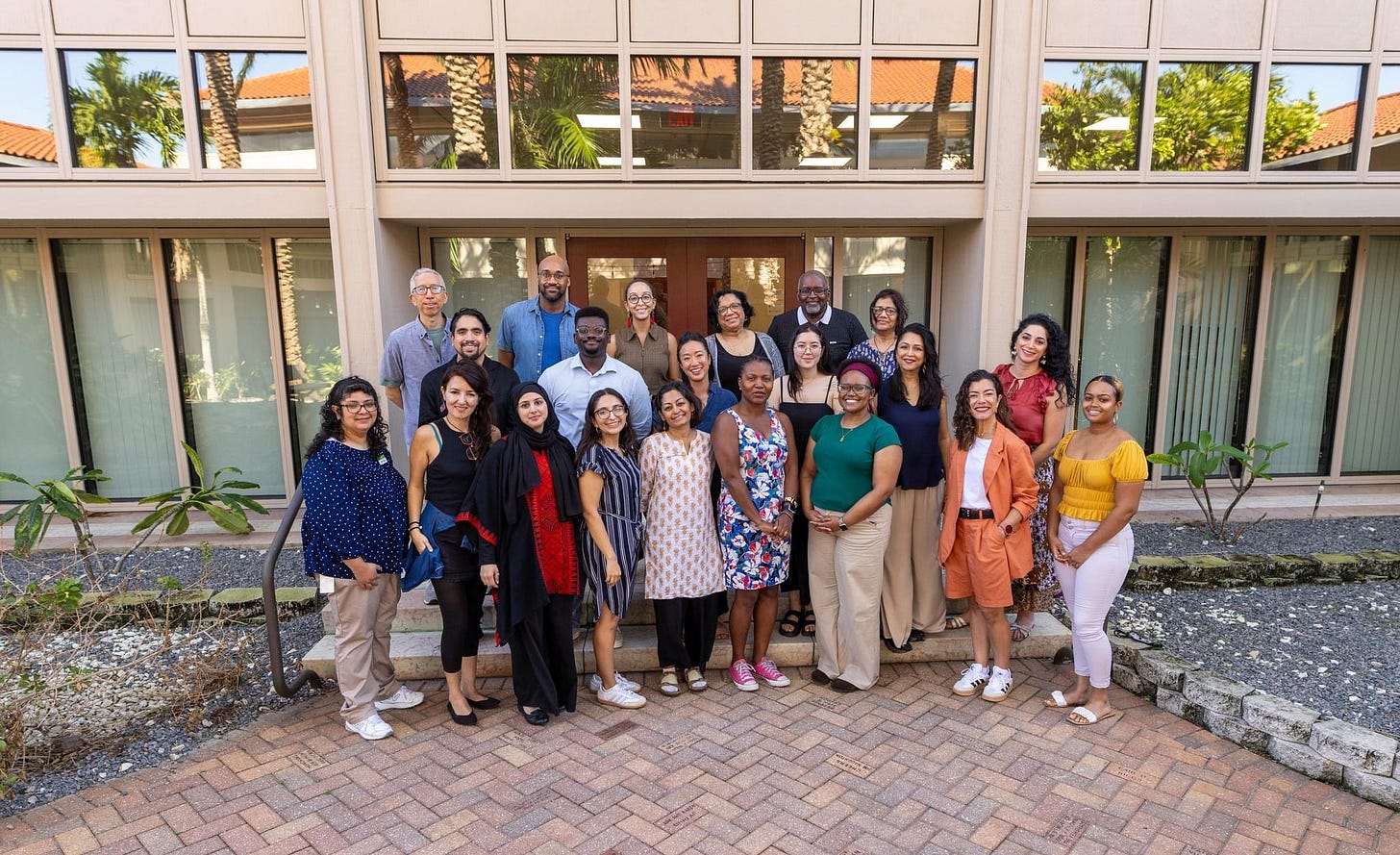Writing is a form of emancipation.
On the stories that cut the chains that bind us and reveal the clear skies ahead
For six years, I’ve been an instructor on a seminar for journalists from historically marginalized communities — some calls us “journalists of color,” but I find the term doesn’t capture that exclusionary nature of our shared experience in media. The seminar is called Power of Diverse Voices and it happens every November at the Poynter Institute, a decades-old nonprofit in St. Petersburg, Florida, that provides training for journalists and newsroom managers and executives.
It’s an intensive and intensely emotional experience for instructors and participants: Over four days, coaches like me help writers unearth very personal stories and connect them to universal themes. The process requires digging deep and often visiting places inside ourselves where we stored memories of experiences we wished had never happened to us. Exploring those and confronting them is an exercise in catharsis. Grounding stories on them is an act of courage and also an emancipation. In embracing our vulnerabilities, we regain whatever power we thought we’d lost (or never had).
This year, the program felt particularly relevant. It happened a week after a presidential election that revealed profound divisions and stoked anxiety among a cohort made up of Black, Brown, immigrant, queer and Muslim journalists — a representation of these increasingly diverse United States. Through our writing, we affirmed our identities and critical importance of the work we do. In one another, we found the fuel to carry on, leaning on the strength, resilience and adaptability that help each of us turn the challenges before us into opportunities to become better versions of ourselves.
Growth can only be achieved through introspection. Same goes for happiness. We all looked inside during our days at Poynter — students and instructors — to find the chains that bound us, the anchors that kept us stuck. Then, we set ourselves free, not to be unmoored, but to come up to the surface, breathe, look up and see (remember?) that the big blue sky just beyond the clouds is still there. It’s always going to be there. It’s on us to aim for it.
***
Paul von Zielbauer, who writes Aging with Strength on Substack, built his most recent post around the psychological habits he spotted in interviews from 1983 with Sting, Andy Summers and Stewart Copeland from The Police. These are simple habits, stuff like enduring self-belief, intrinsic motivation and passion for what we do. As I read Paul’s words on my return flight to New York on Friday, I realized that these, too, come from within.
The ingredients are all inside of us, available to those of us who aren’t afraid to do the hard work that’s often required to find them.
With love and purpose always,
Fernanda



Good work! I'm so proud of you. As a teacher, there is nothing quite like seeing a former student become a teacher too.